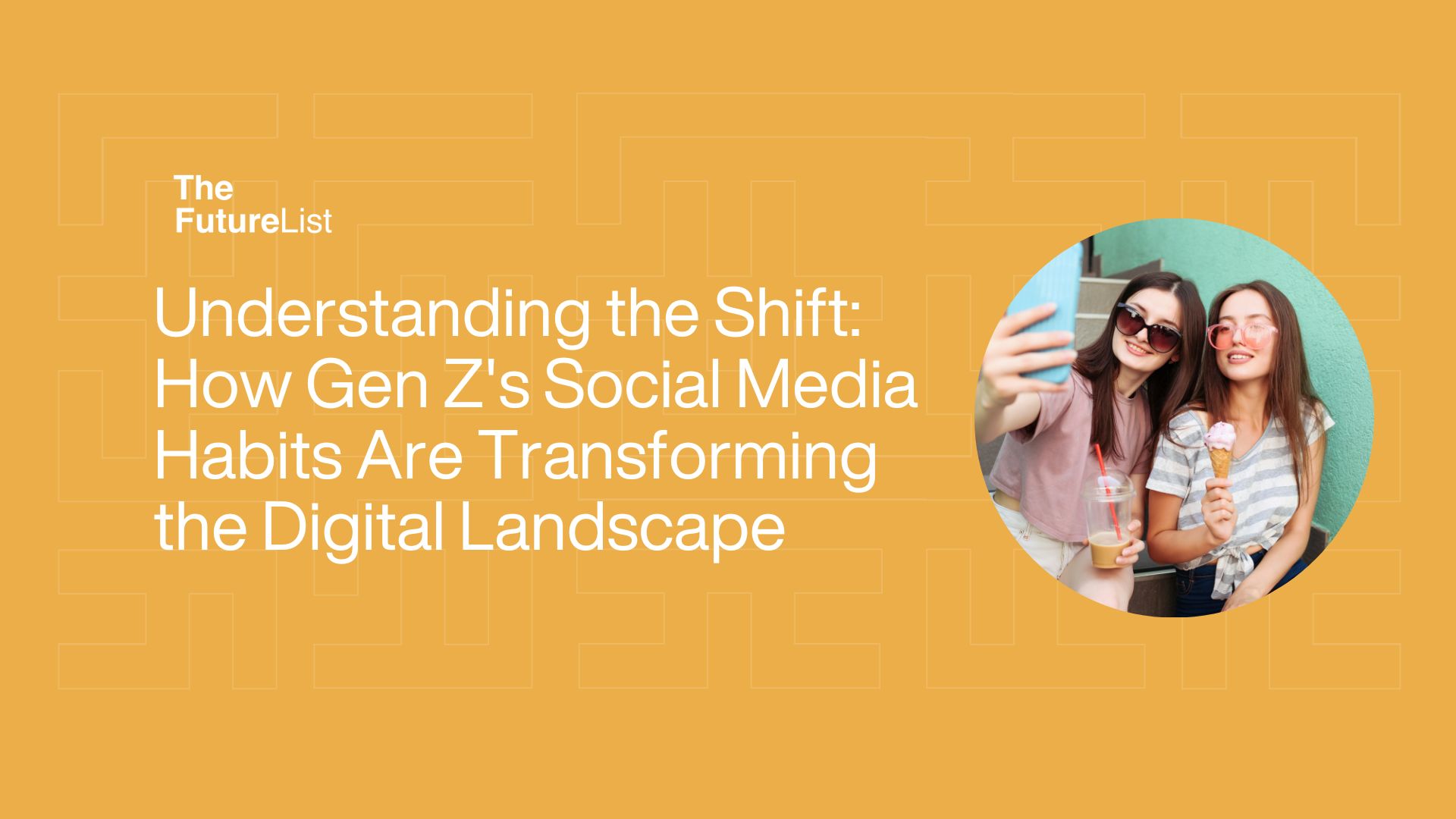
Understanding the Shift: How Gen Z's Social Media Habits Are Transforming the Digital Landscape
Understanding the nuances of social media usage among Generation Z (Gen Z) is essential for tech startups aiming to thrive in a competitive market. As digital natives, Gen Z individuals, born between the mid-1990s and early 2010s, have grown up in a world immersed in technology and social media. These digital natives are reshaping the way we interact, consume content, and shop online. By gaining insights into Gen Z’s behaviours and motivations, tech startups can tailor their strategies to effectively engage with this influential demographic, driving growth and success in the digital age.
Understanding Gen Z’s Social Media Landscape: Gen Z’s relationship with social media is characterised by authenticity, transparency, and a desire for meaningful connections. Unlike previous generations, who may have been drawn to curated content, Gen Z values genuine, unfiltered experiences that resonate with their real-life aspirations and challenges. Platforms like TikTok, with its short-form, user-generated content, have surged in popularity among Gen Z, offering a platform for creativity, self-expression, and community building. Additionally, visual-centric platforms like Instagram provide Gen Z with the tools to showcase their creativity, connect with like-minded individuals, and share their experiences in a visually compelling manner.
The Impact of Social Media on Content Consumption and Creation: Social media has revolutionised the way content is consumed and created, with Gen Z at the forefront of this digital transformation. This generation’s preference for bite-sized, visually engaging content has led to the rise of platforms like Instagram Stories, Snapchat, and TikTok, where users can share fleeting moments and express themselves in creative ways. User-generated content (UGC) has become increasingly influential, with Gen Z placing a high value on content created by their peers and influencers they admire. Tech startups can leverage this trend by collaborating with influencers, encouraging user-generated content, and creating authentic, relatable content that resonates with Gen Z’s values and interests.
Social Commerce and the Rise of Influencer Marketing: Social media has evolved beyond being just a platform for socialising and content consumption; it has become a powerful driver of e-commerce through the phenomenon known as social commerce. Gen Z’s penchant for social validation and peer recommendations has made them avid consumers on social media platforms, where they discover products, seek recommendations, and make purchases seamlessly. Platforms like Instagram and Pinterest have integrated shopping features directly into the user experience, blurring the lines between social media and e-commerce. Influencer marketing has also emerged as a potent strategy for tech startups looking to reach Gen Z consumers authentically. By partnering with influencers who resonate with their target audience, startups can amplify their brand message, drive product awareness, and foster trust and credibility among Gen Z consumers.
The Role of Data Privacy and Security: While Gen Z is known for its digital fluency and comfort with technology, they are also keenly aware of the importance of data privacy and security. Recent data breaches and privacy scandals have heightened concerns among Gen Z about how their personal information is collected, stored, and used by social media platforms and tech companies. As a result, Gen Z consumers are increasingly selective about the platforms they engage with and the data they share. Tech startups must prioritise data privacy and security in their products and services, transparently communicating their data practices and empowering users with control over their personal information. By fostering trust and transparency, startups can build stronger relationships with Gen Z consumers and differentiate themselves in a crowded market.
Looking Ahead: Adapting to Emerging Trends and Needs: As Gen Z continues to drive innovation and change in the digital landscape, tech startups must remain agile and adaptable, ready to embrace emerging trends and meet evolving consumer needs. The rise of emerging technologies like augmented reality (AR), virtual reality (VR), and artificial intelligence (AI) presents new opportunities for startups to engage with Gen Z in innovative and immersive ways. By leveraging these technologies to enhance user experiences, personalise content, and deliver value, startups can stay ahead of the curve and continue to thrive.
Gen Z’s social media habits and usage patterns are reshaping the digital landscape and revolutionising the way we interact, consume content, and shop online. For tech startups, understanding and harnessing the power of Gen Z’s influence is essential for driving growth and success in today’s competitive market. By embracing authenticity, leveraging user-generated content, and prioritising data privacy and security, startups can build meaningful connections with Gen Z consumers, foster brand loyalty, and position themselves for long-term success in the digital age. As we look to the future, staying attuned to emerging trends and adapting to the evolving needs of Gen Z will be critical for startups seeking to thrive in an ever-changing digital frontier.
Get innovation insights from The FutureList weekly. Subscribe to our newsletter here
Categories
- Agritech
- Artificial Intelligence
- Biotech
- Blockchain
- Climate Tech
- Data Infrastructure
- Edtech
- Events
- Fashion
- Fintech
- Healthtech
- Infrastructure
- Innovation Memos
- Innovation Scout Program
- Insight
- Insurtech
- Machine Learning
- Martech
- Mobility
- Music and Media
- Partner Offers
- Perks
- Procurement
- Proptech
- Retailtech
- Ridehailing
- Ridesharing
- Robotics
- Space Aviation
- Supply Chain
- Talent
- Telecoms
- Uncategorized
- Venture Capital
- Wastetech
- Women In Tech